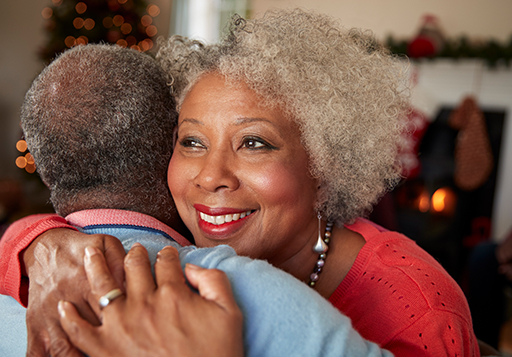
The holiday season is a time for joy and celebration. It’s also a time of year when many of us visit our elderly loved ones to spend some quality time with them. Although holidays are full of love and happiness, they can also be a stressful time for elderly loved ones. Sometimes, it can be difficult to know if they’re struggling or doing well because their behaviors might change during the holidays. The holidays can lead to feelings of loneliness and depression which in turn could lead to changes in behavior. It is important to know what signs you should look for when visiting an elderly relative during the holiday season so you can prevent any dangerous situations from occurring.
This holiday season, make sure you are paying attention to your elderly loved ones. There are certain signs that can indicate whether or not they are struggling with aging-related health problems. These include confusion, changes in appetite and overall well being, changes in gait, poor socialization and struggling to complete tasks.
Signs to Look Out For:
1) Confusion
We all know that as we grow older, our brains begin to deteriorate. Do you notice your loved one becoming easily agitated, repeating themselves, forgetting vital events or names, or becoming confused? These might be indicators of dementia or Alzheimer’s disease.
2) Changes in Appetite/Overall Wellbeing
It’s possible that a person’s mood or conduct is changing as a result of poor health. The holidays are a time when many people experience sadness. They’re away from friends and family, experiencing life milestones, and the harsh winter months can exacerbate those sentiments. If you notice a substantial weight loss, an altered appetite, or significant changes in sleep patterns among your elderly loved ones, they may be depressed. Additionally, Do you notice that your loved ones are losing their independence? Are they choosing to wear the same outfit day-in and day-out, or saying things with little sense of what is actually being said? These could be signs of early dementia.

It is important to know what signs to look for when visiting an elderly relative during the holiday season so you can prevent any dangerous situations from occuring.
3) Changes in Gait
Are your loved one’s movements abnormal? Is he or she walking slower than usual? When walking, are they unstable and clinging to furniture or walls? If you detect these symptoms, it’s possible that your loved one is at risk of falling and sustaining serious injuries. Changes in stride could be a sign of muscular or joint discomfort without any outward indications.

4) Poor Socialization
Companionship is critical for our general health. Do you notice that your elderly loved ones prefer to stay at home alone rather than socialize with friends and relatives, or participate in activities they used to enjoy? Such social isolation might be an indication of depression.
5) Difficulty Completing Tasks
Are you noticing that your loved ones completing simple tasks? If so, it could deterioration and memory loss, symptoms of early dementia. Is their home unkempt with dirty dishes in the sink or expired foods in the refrigerator? It’s possible your loved one is having difficulty managing their home.
Final Thoughts
If any of these symptoms persist for more than a few days at a time, it is best to call to get the help they need as soon as possible. If you see any indicators of dementia or a loss in overall health among your loved ones during the holidays, they may require long-term care. Assisted living communities and memory care programs, such as those provided by Avanti Senior Living, can provide the services they need and deserve. Your family member will not only experience an enhanced quality of life but will also thrive in a setting specifically geared for seniors.

